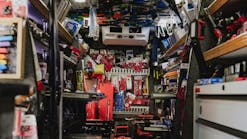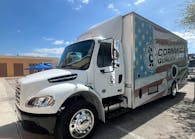I was really lucky to grow up in the country outside in a small steel town, Latrobe, Pennsylvania. Latrobe is known for Mr. Rodgers, Arnold Palmer, Rolling Rock Beer, and Stricklers Drug Store. It’s also the home of the ice cream banana split and St. Vincent College — the Pittsburgh Steelers Training Camp.
We would watch the Steelers go through their pre-season training and marvel at their daily heavy duty routines of blocking, tackling, and running. It was usually basics in the morning and playmaking in the afternoon. These guys were the best of the best: Terry Bradshaw, Lynn Swan, Rocky Bleier, Franco Harris, and mean Joe Green. Yet there they were practicing the basics over and over and over again. With a 2020 average NFL player salary of $850,000 and the superstars making gazillions you would think they already know the basics, but every year, all professional teams in all sports start training camp with the basics and work up from there.
How about you? Let’s take the time to review the basics of successful mobile selling so you’re ready to kick your revenue into high gear.
Sales basics for mobile tool dealers
Ask for the order: There is nothing more important than asking for the order. No matter how good or bad a presentation goes ask for the order. The worst that can happen is your prospect says no, but without asking you’ll never get the business. Using an easy question like, “Should I just add this to your weekly payment?’ will often get the answer you want.
Ask questions as you give your presentations: Ask simple questions like, “Do you think this feature will help you?” or “Do you think this tool will help you do your job quicker or safer?” These are called trial closes and they help you take the prospect’s temperature on the product. This also helps your prospect become part of the discussion.
Be darn sure you understand, know how to use, and how to demonstrate a product before you try to sell it: I can guarantee that if a product has 20 features/benefits and you know 19 of them, the first person you demonstrate to will ask you about feature number 20. It never fails.
Sharpen you own sales skills: Reading these “Go Sell Something” articles is a step in the right direction. You can also go to YouTube and type in the following; To Sell More, Sell Benefits Not Just Features - YouTube This is the best short video I’ve ever seen on selling benefits. There are many great selling skills videos available and each one has some to offer you.
Give your new product presentations to some smaller customers first before you go for the big sale: Small customers and big customers usually have the save questions and concerns. Practice on the small customers first.
Welcome objections/questions: When a prospect voices an objection or question it is actually a good thing. It means they are interested enough in what you are presenting to have a question. Your response should always be positive. “Wow, that’s a great question” is a good response. Answering the question positively with a smile will ease the mind of the prospect and they will not think you are hiding anything. Consistent questions should be included in your presentation so you can present the answers in a positive manner.
Cleanup and rearrange your mobile store: Make it look fresh and new. Even though as soon as you sell someone a new tool they will get it all greasy and dirty, nobody wants to buy something that looks bad before they buy it. And they sure don’t want to shop in a truck that looks like a traveling flea market.
Review each of your stops: Could spending more time at shop “A” generate more sales than driving 20 minutes to shop ”B” where sales are small? Yes, the technician at shop B is a great guy and is fun to talk to but you’re not a commercial visitor; you are out there to sell something. Even cutting back your visits to shop “B” to every three weeks is better than a wasted stop every week.
Review your inventory: How much of your money is tied up in slow moving dogs? Don’t guess. Find out for sure what is moving and what is not. Now is the time to send them back, special them out or trade them with someone in your region. How about if you email out a “garage sale” list of products to your customers with special pricing? Sure, you may take a margin hit but financially tying your cash up with dogs is worse.
Develop you own marketing plan: Sure, your company has a marketing plan that is designed to run from coast to coast and treats all customers the same. Well, your competitors have a national marketing plan, too. You need to do something that makes you stand out positively in your customer’s eyes. Albert Einstein is widely credited with saying, “The definition of insanity is doing the same thing over and over again but expecting different results.” Making 15-20 stops per day, five days per week, for 52 weeks per year is not marketing, it is simply making the rounds — and it’s probably really boring too. Marketing is developing a plan to capitalize on your company’s brochures and promotions.
Like it or not, social media sells: Review my article from the February 2021 issue about customer relationship marketing. There are a lot of good ideas to help you build your personal brand and your sales.
If you tell a customer you’re going to do something, do it! Nothing ticks off a customer like broken promises. If you can’t fulfill your promise, let them know — don’t just blow them off.
As you know I can go on and on about selling skills and tips for your success. The preceding tips are the basics that will help you succeed. Even if you are in your brand’s top 100 or top 10 jobbers, you still need to sharpen your sales skills to stay on top. Remember, your direct local competitor is reading these tips too.
Just one more point: Answering your mobile phone in the middle of a presentation makes your prospect feel insignificant. Nobody wants to buy from a salesman who doesn’t pay attention to them.
Now go sell something.



